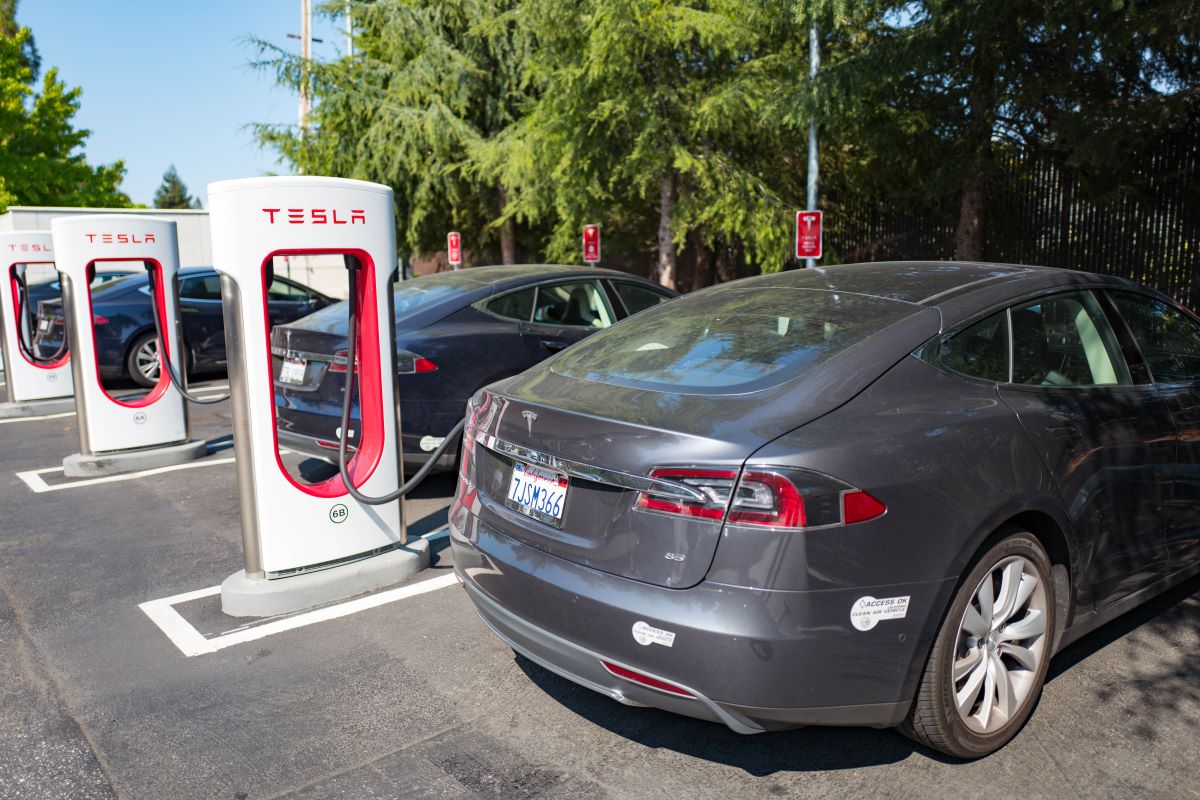
EV Rebate vs. Tax Credit: What’s the Difference Between EV Incentives?
Buying an EV could be a really smart decision right now. Electric vehicle incentives are the icing on the cake and, overall, could help you save (or get back) thousands of dollars after purchase. There are various federal, state, and local EV incentives to help buyers afford the vehicle they want. These include EV tax credits, rebates, and other offers. What’s the difference between these incentives? Let’s take a look.
EV tax credits
First, let’s take a look at tax credits. Federal and state EV tax credits can be helpful—but there are limitations, and the money you may get back doesn’t come right away. If you’re counting on electric car tax credits to lower the cost of the Tesla, Nissan LEAF, or Hyundai Kona that you want to buy, don’t. You won’t see any of that money until the following year’s tax return.
Electric vehicles like the Lucid Air qualify (or should qualify soon) for federal tax credits because they are fully electric. Plug-in hybrid electric vehicles like the Volvo S60 PHEV qualify, but not for the full $7,500. And, even if the car is eligible for the full amount, you may not be. There’s some discussion about whether tax credits only benefit the wealthy because they may not be all that helpful for anyone making under $60,000.
Are EV tax credits different than deductions? Yes—a deduction lowers your taxable income. Deducting the purchase price of an EV is likely only going to work if you’re buying the electric car for business purposes. A tax credit is a specific amount of money added to your tax return.
How do you claim your EV tax credit? You’re in luck—we’ve got a step-by-guide on just that.
EV rebates

Next, let’s look at EV rebates. A rebate is the fastest way to lower the cost of an EV or get some money back after your purchase. Typically, a rebate comes after the sale—some portion of the total cost of the EV is returned to you after filling out some paperwork.
At this time, there are no federal EV rebates offered. State rebates will vary based on location. For instance, California is generally known for providing good EV rebates to buyers, and Texas offers a $2,500 state rebate for buying an electric car. However, many states do not provide any kind of statewide rebate for all-electric or plug-in electric vehicles.
Dealerships will often offer rebate deals on electric cars, so check for any local deals. Private rebate offers may also be available to you through businesses in your area.
How do you claim your EV rebate? Contact the company offering the rebate for assistance, or ask the dealership from which you’re buying the electric vehicle.
State and local EV incentives

What incentives are there for electric cars? ElectricForAll has a handy lookup tool. You can input your zip code and see all current state and federal incentives, including rebates and tax credits. You can also find laws and incentives online at afdc.energy.gov.
Incentives will vary depending on where you live. For instance, in my home state of Vermont, state incentives (tax credits) are offered for electrified vehicles. Plug-in hybrid electric vehicles are eligible for a $3,000 tax credit only for individuals making $50,000 or less or married couples making $75,000 or less. All-electric cars are eligible for a $4,000 tax credit for the same group. Buyers earning more will qualify for slightly lower credit, and buyers making over $100,000 ($125,000 for a married couple) don’t seem to qualify at all for state tax incentives.
In my state, private companies offer rebates—primarily power companies.
Are EV incentives worth it in 2022?
It’s a tricky question to answer because it can vary by brand. New General Motors cars (Cadillac and Chevrolet) and new Tesla EVs no longer qualify for the federal electric vehicle tax credit. Toyota is about to reach its EV tax credit limit, and cars sold after that date will only be eligible for a percentage of the original credit for six months to a year.
If you make over a certain amount and don’t want to buy a Tesla, Cadillac, Chevy, or Toyota EV, federal incentives will likely be worth it. If your state offers rebates, that’s one of the best ways to save on overall EV costs.
You may also want to consider leasing an electric car. Dealerships are more likely to be able to claim the full federal tax credit for an EV, and that’s often reflected in a lower lease payment for you. Dealers are also more likely to know all the ins and outs and tips and tricks of applying and qualifying for EV incentives.


